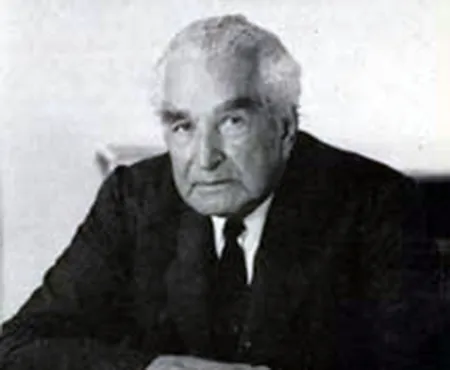Sir Alexander Bustamante is one of Jamaica’s most revered national heroes, known for his relentless fight for workers’ rights, his leadership in Jamaica’s journey to independence, and his role in gaining international recognition for the island. As the first Prime Minister of an independent Jamaica, Bustamante laid the foundation for the country’s global presence. His contributions to politics, labor rights, and diplomacy played a crucial role in shaping Jamaica’s identity on the world stage.
Early Life and the Rise of a Leader
Born on February 24, 1884, in Hanover, Jamaica, William Alexander Clarke later adopted the name Alexander Bustamante. His experiences abroad—working in Cuba, Panama, and the United States—exposed him to global labor movements and the struggles of the working class. When he returned to Jamaica in the 1930s, he was determined to champion the rights of the poor and oppressed.
Bustamante’s leadership became evident during the labor uprisings of the late 1930s. As economic hardships fueled widespread protests, he emerged as the voice of the working class. His activism led to the formation of the Bustamante Industrial Trade Union (BITU) in 1938, which fought for fair wages, better working conditions, and the empowerment of Jamaican laborers. His efforts earned him both admiration and imprisonment, but his commitment to social justice never wavered.
Political Leadership and the Road to Independence
Recognizing the need for political change, Bustamante transitioned from labor activism to politics. In 1943, he founded the Jamaica Labour Party (JLP), which became a key force in Jamaica’s path to self-governance. He was instrumental in Jamaica’s push for independence from British rule, advocating for policies that would prepare the island for self-sufficiency.
In 1953, Bustamante became Jamaica’s first Chief Minister, and when the country gained independence on August 6, 1962, he was sworn in as Jamaica’s first Prime Minister. Under his leadership, Jamaica strengthened its democratic institutions and sought to establish a distinct national identity.
Gaining International Recognition
Bustamante’s contributions to Jamaica’s international standing can be seen in several ways:
1. Championing Jamaica’s Independence
As a founding father of modern Jamaica, Bustamante was at the forefront of the island’s independence movement. His diplomatic efforts ensured that Jamaica’s transition to independence was peaceful and respected worldwide. His leadership in the West Indies Federation (a short-lived attempt at Caribbean unity) also demonstrated his vision for regional cooperation.
2. Establishing Diplomatic Relations
Upon gaining independence, Bustamante prioritized building international alliances. He worked to position Jamaica as a key player in the Commonwealth and strengthened ties with countries like the United States, Canada, and the United Kingdom. His government laid the foundation for Jamaica’s presence in the United Nations and other international organizations.
3. Promoting Economic Development
Bustamante’s policies encouraged foreign investment, particularly in tourism, agriculture, and industry. His economic strategies helped Jamaica establish trade partnerships and attract global attention as a growing economy in the Caribbean.
4. Advocating for the Caribbean on the World Stage
Bustamante was a vocal advocate for small island nations, ensuring that Jamaica and its Caribbean neighbors were recognized in international politics. His government took a firm stance on issues affecting developing nations, aligning Jamaica with global movements for economic and social justice.
Legacy and Impact
Sir Alexander Bustamante’s influence on Jamaica’s international standing cannot be overstated. His bold leadership in labor movements, politics, and diplomacy helped transform Jamaica from a British colony into a respected independent nation. Today, his legacy lives on in Jamaica’s democratic institutions, strong labor laws, and global partnerships.
As the first Jamaican to serve as Prime Minister, he paved the way for future leaders to continue building Jamaica’s reputation as a nation of resilience, culture, and influence. His work ensured that Jamaica would not just be known for its breathtaking beaches and vibrant music, but also for its contributions to global diplomacy and economic development.
Conclusion
Sir Alexander Bustamante’s name is forever etched in Jamaica’s history as a fearless leader and visionary. His contributions to labor rights, independence, and diplomacy gave Jamaica a strong foundation for international recognition. As Jamaica continues to make its mark on the world, it does so standing on the shoulders of leaders like Bustamante, who dedicated their lives to ensuring the nation’s sovereignty and success.


